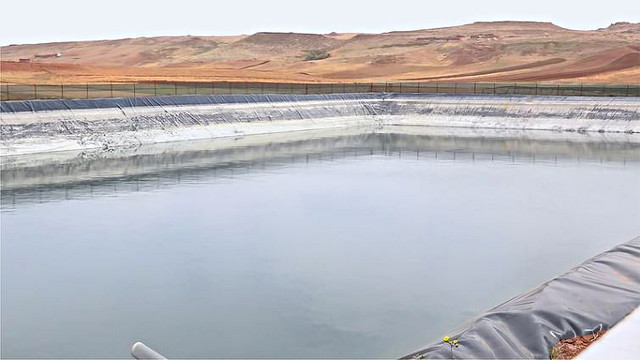South Africa’s national development monitoring and evaluation
IIED has undertaken a series of 'light touch' case studies to show how some countries are developing adaptation M&E for learning systems. This study looks at South Africa.

South Africa can expect less rainfall as a result of climate change, making water conservation a top priority in both urban and rural areas (Photo: Jason Jones, Creative Commons via Flickr)
In 2011 South Africa’s government promulgated the National Evaluation Policy Framework. This provided the basis for a system of evaluations that are used for learning and to improve the effectiveness and impact of government.
South Africa's national evaluation system (NES) is closely associated with the national planning process, and the evidence gathered from the NES is fed directly into policy decision-making. South Africa’s NES, as guided by the Department of Planning, Monitoring and Evaluation (DPME), shows how M&E can be successfully and sustainably introduced at the country level and inform decision-making processes.
This is due to its focus on the government's strategic priorities and its integration within the cycles of national planning and implementation.
What’s interesting about this case study
Well considered approach to developing the national M&E framework
South Africa introduced the government-wide M&E framework in 2005. The framework gained greater commitment from the government after the election in 2009. In support of government’s commitment to increase the use of evaluations, the cabinet approved a National Evaluation Policy Framework (NEPF) in November 2011. The NEPF provided the basis for a system of evaluations across government.
The national M&E system was rapidly but credibly developed and embedded into national planning processes at national and sub-national level. This was due to a well-considered process at the outset, such as learning from other national experiences; as well as a favourable enabling environment, largely driven by high-level political commitment.
Evaluations feed policy decision-making
The NES is well integrated into national planning and evidence from completed evaluations informs cabinet-level policy decision-making. Many evaluations have resulted in significant changes to the programmes or policies evaluated.
The focus of the evaluations is on the government’s strategic priorities that align within the cycles of national planning and implementation. Furthermore, the whole of government approach has led to better understanding among departments of how their work impacts other departments, and greater coordination between departments and across the government generally.
There has been a marked increase in the number of evaluations taking place across government, as well as a proliferation of guidance on how to undertake effective evaluation.
Focus on building capacity
The DPME has worked to build capacity to undertake evaluations by providing a wide range of support, including standards, guidelines, and training. Support systems that have been established include: standards for the quality of evaluations, guidelines on how to conduct elements of the evaluation system, evaluation competencies, various capacity development elements, a quality assessment system and communication elements. All of the guidelines and tools are available on the DPME website, making them easily accessible for users.
DPME has also established data forums – spaces for real-time interaction between the main stakeholders – linked to the key outcome areas. These are designed to help develop understanding of the datasets that are required, identify core datasets that are needed from each of the different departments, and facilitate sharing and technical support.
Strong apex institution driving M&E
The presidency – under which DPME sits – has taken on planning and M&E roles and has largely been responsible for driving national M&E forward in South Africa. The DPME has played a pivotal role in developing the M&E system and implementing it.
DPME is responsible for the production of government-wide M&E frameworks, facilitating the production of whole of government five-year plans for strategic priorities, in addition to monitoring and evaluating plans for priorities and for performance of individual departments and municipalities.
High-level political support for the development and entrenchment of the national M&E system has led to a rapid staffing-up of DPME to 200 personnel. Indeed, the high calibre of DPME staff has been another factor in the success of the national M&E system, leading to relatively rapid development and implementation.
Challenges
The DPME collates data from other government departments; the quality of that data depends on the capacity of the agencies that gathered it. Initial evaluations were often constrained by a lack of data or a lack of good quality data. This meant that the majority of the initial evaluations considered efficiency and relevance, rather than effectiveness in achieving outcomes and impacts.
The DPME has provided support, guidance and training to address this challenge.
Other historic reported challenges include:
- A culture of compliance, but a failure to M&E for the purposes of reflection and performance improvement
- Duplication of reporting across departments, and
- Not devising effective theories of change to underpin the M&E.
Lessons learned
Strong political buy-in is useful for developing a robust national M&E system. South Africa's government showed strong political commitment for establishing and driving forward M&E systems. The process of developing the national M&E system was well thought through from the outset, and the government arranged for senior officials from across government to study countries' experiences.
The DPME has purposely created M&E champions across government. These 'champions' or coalitions from across government helped to link M&E to national planning, with the evaluations being fed into policy decision-making.
Crucially, there is a strong coordinating institution in DPME, which has done a lot of work to promote M&E skills, create support for M&E and build cross-government buy-in.
This work is part of the Partnership on Transparency in the Paris Agreement initiative managed by GIZ.
Contact
Barry Smith (barry.smith@iied.org), researcher, IIED's Climate Change research group


